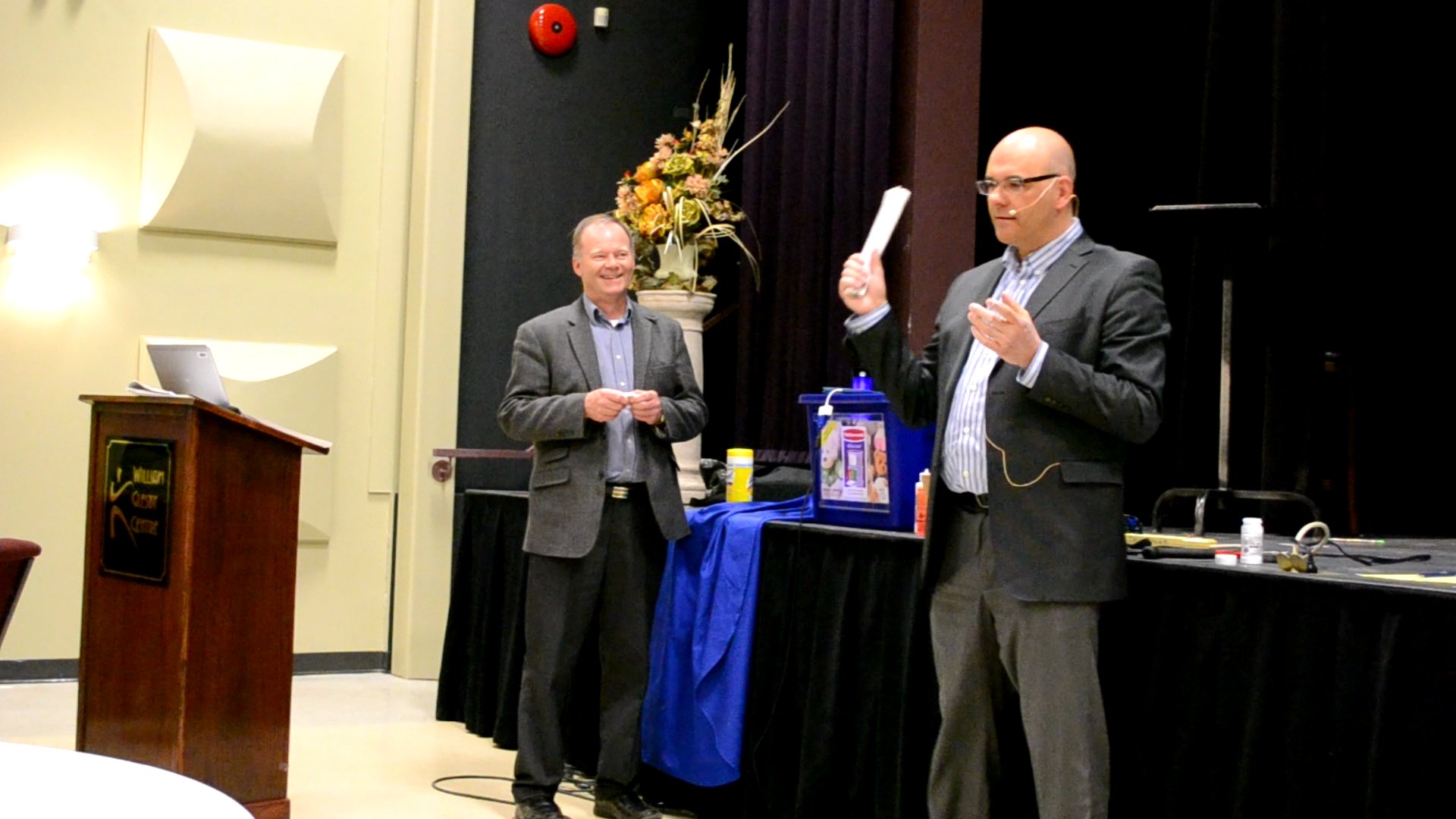When Dr. Peter Provis of Elanco Animal Health, talks about the PED virus, his audience listens. As was the case at a producer meeting in Portage la Prairie recently hosted by the Prairie Swine Centre of Saskatoon. Provis took his time, answered any questions, used many great examples and analogies and after speaking continued to answer questions by concerned producers. He did sensationalize it, didn’t sugar coat it, just described its being, and ability to contaminate, and breakout quickly.
Provis, the swine technical consultant for western Canada with Elanco says the U.S. experience shows the virus that causes Porcine Epidemic Diarrhea is thousands of times more infectious than similar coronaviruses.
“PEDv: Understanding the Impact on Your Farm” was one topic as part of the Prairie Swine Centre’s series of 2014 producer meetings.
Provis said PEDv can act very much like TGE, a sister coronavirus, but it is much more infectious.
“We’re starting to learn from our colleagues in the U.S. that this virus differs from TGE in a couple of respects and one respect is that it’s highly infectious,” he said. “For many viruses you need a certain amount of virus particles to cause disease in an animal. We’re learning that with PED it doesn’t take very many of these viruses, which means that if you don’t get things right in terms of your bio-security, your traffic or your procedures that a very small amount of virus can get into your barn and the disease will take hold.”
Dr. Provis says they now understand from some work done in the U.S. the amount of virus a pig excretes with PED will be thousands and thousands of times that from TGE.
The example they use is one small gram of feces from a piglet infected with PED, a gram is about the size of a pencil eraser, would contain as much virus as a whole ton of feces from a TGE infected pig so there’s a substantial difference in terms of the load of that virus that’s going to be out there in the environment.
He says the focus has to continue to be on prevention and the industry is doing a good job in getting that message out.
“When the economic implications of getting this infection on the farm are considered it doesn’t take very long to recognize the significance of that message,” he adds.
Harvey Wagner, the manager of producer services with Sask Pork says transportation bio-security remains the primary focus as Saskatchewan’s pork producers strive to keep PED virus out of their province.
Wagner says with the findings in Manitoba, it certainly makes everyone aware they have to maintain high levels of bio-security during transport.
“I think it’s one of those things you have to almost assume that any place where animals congregate or trucks congregate the potential for PED to be there increases quite a bit,” he said. “So we have to be sure we are paying attention to every transport and making sure that we do a proper sanitation and wash. We don’t have as many sites where we have significant number of concentrations but we are monitoring the sites we have.”
Wagner says they’re certainly monitoring their federal packing plant, the dead stock rendering location and a couple of smaller assembly yards.
“It’s good to see that we haven’t had any but certainly we’ll still make sure that we have to pay attention to those sites and locations,” he said.
“Because any time you’re bringing together trucks coming from different locations and different directions, always have the opportunity to bring the virus in.”
Wagner says farms have tightened up on farm bio-security paying attention to barn entries, how they handle load outs and trucks coming onto their farms and most are paying for considerably improved washing making sure trucks coming onto their farms are cleaner. •
— By Harry Siemens






